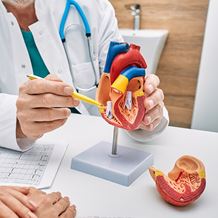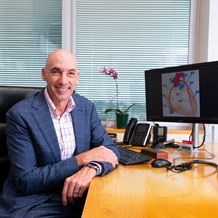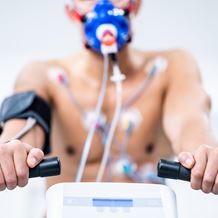What is a Cardiac MRI?
A cardiac MRI uses magnets and radio waves to take detailed pictures of your heart and the surrounding tissues. It is a safe and effective procedure that can be used to diagnose a wide range of heart conditions including coronary heart disease, congenital heart disease and heart valve disease. Cardiac MRIs can show all the different parts of your heart including the separate chambers, valves, and muscles, including how the blood flows. The high-resolution images are designed to give an accurate measurement of how well the heart is functioning as well as provide information about any existing or potential heart condition and future treatment pathways.
How does is it work?
Cardiac MRI is a common procedure that uses huge magnet and radio waves to collect high quality pictures of your heart on a computer. The pictures collected can help detect any heart abnormalities as well as heart disease or any heart damage. It is a safe and painless procedure that lasts between 45-90 minutes. During the examination, patients will slide into a large cylinder and lie back without moving. You may be asked to hold your breath for a short period to improve the accuracy of the images. MRI machines are very noisy, but you’ll be able to wear headphones and communicate with your medical team using a microphone.
Why do I need it?
Your doctor may recommend a cardiac MRI if you are at risk of a heart problem. Patients may be experiencing a range of symptoms such as:
- Ongoing chest pain, shortness of breath, fainting
- Heart abnormalities such as enlargement or thickening
- Heart damage from a previous heart attack
- Heart valve disease
- Congenital heart problems
What does it test for? What does it show?
Cardiac MRIs are typically used to diagnose common heart conditions including coronary heart disease, congenital heart defects, cardiomyopathy, heart valve disease and heart failure. It can also be used to assess damage from a previous heart attack or indicate the risk of future heart problems. Cardiac MRIs are usually interpreted by a radiologist who specialises in these types of images. The information can also be used to inform future treatment pathways. Once your results have been received by your treating doctor, you can discuss an appropriate treatment plan to manage your symptoms going forwards.
What's next?
If you have been experiencing heart-related symptoms, book an appointment with our cardiac services specialist today.
Our specialists in Cardiac Services
View all specialists






